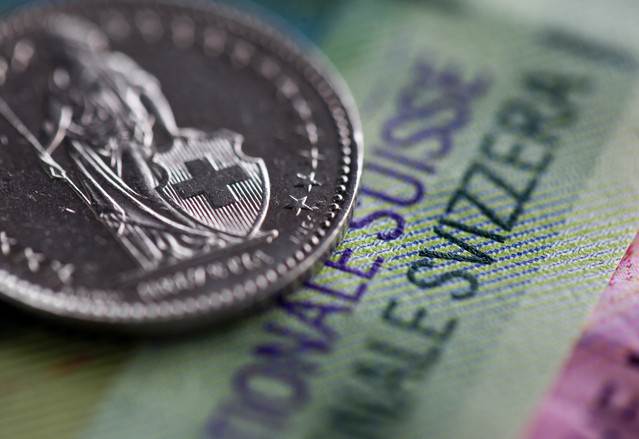 The Swiss National Bank decided to leave the interest rates unchanged at -0.75% last week (the lowest deposit rate in the world), claiming that it was necessary due to the inflation prospects for the Swiss economy. The Swiss consumer price index was in negative territory at -0.1 percent (monthly) in November after being at -0.3 percent in October. The SNB also announced that it foresees the inflation level to be at a 0.3% this year and at 0.6% in 2020.
The Swiss National Bank decided to leave the interest rates unchanged at -0.75% last week (the lowest deposit rate in the world), claiming that it was necessary due to the inflation prospects for the Swiss economy. The Swiss consumer price index was in negative territory at -0.1 percent (monthly) in November after being at -0.3 percent in October. The SNB also announced that it foresees the inflation level to be at a 0.3% this year and at 0.6% in 2020.
The primary role of central banks is guaranteeing monetary stability, which means keeping inflation low. Like their counterparts at the European Central Bank, the SNB considers that an acceptable level of inflation is below 2%.
Nevertheless, the latest inflation data not only means that the bank has been struggling to keep inflation levels close to this target; it also means that the Swiss economy is suffering from deflation, which is not good news as persistent negative inflation affects productivity and cash flows in a negative way, and it also increases unemployment levels.
Just after the bank released its decision, the Swiss Franc rallied against the dollar, making the USD/CHF pair hit a three month-low, at 0.9813, as well as following a strongly bearish trend last week.
This occurred despite the fact that the bank's announcement was expected to ease the upward pressure on the CHF, as the underlying uncertainty associated with the trade war and the Brexit political crisis seems to be a more important factor for investors, making the USD relatively less attractive than its Swiss counterpart. The pair attempted to recover after Trump's latest optimistic comments regarding the US-China trade talks but still closed in negative territory on Friday.
The SNB also highlighted its willingness to intervene in the currency market. This is due to a well-known fact about the Swiss Franc: market agents consider it a "safe-haven" currency, which means that in times of uncertainty is more attractive to risk-averse investors, making its value to increase in a significant way during those periods. This poses a problem for the Swiss policymakers since the valuation of a currency is negatively correlated with the export levels, in other words, the higher the Swiss Franc value, the worse the country's export levels.
Meanwhile, the SNB hasn’t discarded the notion of further monetary easing in the future, or so it seemed from the SNB chairman’s latest interview on Swiss radio.
“At the moment it is very clear that the current monetary policy is the right one. We could certainly cut interest rates again if absolutely necessary, but that is not something we aim to do for now,”, said SNB Chairman Thomas Jordan during a radio interview on Saturday.
During another interview with CNN Money, Jordan also defended the Bank's decision to keep its inflation target close to 2%.
“We are a small, open economy. We are exposed to many shocks from abroad, so inflation can sometimes be a little bit higher, or a little bit slower, but over time, (this definition) is very helpful,” he explained.
The SNB expects a better global economic situation for 2020, while it foresees a 1 percent increase in GDP for 2019. According to its projections, Swiss GDP will increase from 1.5% to 2% over the next year, reflecting the “gradual firming expected in global economic activity” as well as the effects of the upcoming summer Olympic games.
